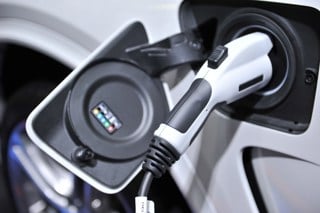More than a third (37%) of companies with fewer than 100 employees either already operate or plan to adopt electric vehicles (EVs) within the next three years, compared to less than a quarter (23%) in 2019, according to Arval Mobility Observatory research.
For plug-in hybrids, almost half of SMEs (46%) either already have them or plan to put them on fleet in comparison to 28% in 2019 while, for hybrids, they were 45% this year against 37% in 2019.
Shaun Sadlier, head of Arval Mobility Observatory in the UK, said: “These results show that UK SMEs are now even more motivated to adopt electric vehicles, plug-in hybrids and hybrids than they were just 12 months ago.
“We have been saying for some time that 2020 would be the year during which electric power takes off for fleets of all sizes and these findings show that SME businesses are part of that trend, which helps to protect the environment and reduce emissions.”
Sadlier says the reasons for the acceleration in interest is due to the tax incentives available for company car drivers.
He said: “The zero per cent benefit-in-kind rate for the 2020-21 tax year for battery electric vehicles, is a huge attraction.
“Also, we are in the process of seeing a dramatic expansion in the choice of EVs available, especially among BEVs. Over the course of this year, the number of models available will increase but there will also be a better representation across more segments and price points."
In the tax year 2022 to 2023, the increase will bring the percentages back to their published rates in existing legislation. (Full tables are available here).
Many businesses that Arval worked with in the UK, said they were planning to move straight from petrol and diesel cars to battery electric alternatives, said Sadlier.
It has recently been reported that a revised company car scheme at Arval has led half its drivers to switch to an electric vehicle (EV), since launching in May.
He said: “A couple of years ago, the received wisdom in the market was that both types of hybrid would probably serve as a transitional technology.
“Instead, the perceived hurdles to battery electric adoption have reduced to a point where they can meet the needs of a wide variety of drivers, although companies also recognise that hybrids and plug-in hybrids will have an increasing role to play in tomorrow’s fleets.
“While there is still work to be done, the charging infrastructure across the UK is growing all the time, providing reassurance to drivers and their employers that these vehicles can be used practically on a day-to-day basis.”























Login to comment
Comments
No comments have been made yet.